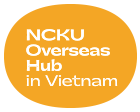Joint Research Projects
Study In Vietnam

Keyword:
Author/Institute

Introduction
Internet plays an important role in ranging from full-fledged businesses, educational institutions, and home environments that offers a way of sharing information. Consequently, this has made both wired and wireless networks become the necessity in human life. While with the rapid growth of internet, problems like overcrowded airwaves and congested traffic have emerged resulting in inequality network service. For instance, the current business-centric profit generating approach to improve performance of WLAN and Internet access points (APs) entirely – both of them do not consider fair-use mainly, and it may generate excessive amounts of e-waste if there is no proper management strategy. Hence, there is a need to identify the key-elements for improving the quality of internet access. To investigate above issues, this project aims to study how to provide better capability of equitable wired/wireless internet access and enhance the security of network communication.
Methods
The principle of this project is trying introducing the concepts of Sustainable Development Goals, (SDGs) to network management strategy. It aims to increase the capability of information communication, striving to provide the universal and affordable access to internet. The research scenario is focusing on academic environments with the intention of improving accessibility using standard off-the-shelf hardware thus reducing the need for considering vendor-tied implementations. Because in many developing countries that wireless network service is a common way to deliver internet access. It is mainly relaying on hotspots provided by institutions, such as dormitories, lecture halls, or libraries. The above locations are the potential spots lacking of graceful management, and it may lead poor connectivity for end-users. Hence, enabling proper management mechanism is expected to be an effective solution that contributes to fair-use and performance.
Results
In this research, the project team has made brainstorm to kick off the potential issues and possible ideas towards public and equitable internet access. For example, using Software-Defined Networking (SDN) and Artificial intelligence (AI) is an option. The participated doctoral students in this project have conducted research discussion sessions with joined professors, and they also attended monthly meeting to report their research progress. Furthermore, the project members have held two on-line webinars during the mid-project term for presenting the ideas and approaches. There is also a manuscript submitted to the international journal for presenting research findings.

Fig1. The proposed scenario for improving network routing security.

Fig2. The proposed traffic management mechanism.
Discussion
To approach a fair-use, and flexible network with essential quality, there are several open issues. First, to have better control of bandwidth optimization, selecting a service-aware allocation mechanism is necessary. Second, satisfying all user requirements and finding suitable corresponding paths is quite hard. Therefore, to keep network system to be efficient, end-user traffic has to be supervised. On the other hand, for gaining more control and security capabilities for data transmission, it is necessary to establish a method to deal with traffic flows. Hence, integrating SDN and AI technologies is a good choice to get ability to arrange suitable resources for satisfying application/service requirements in network transmission.